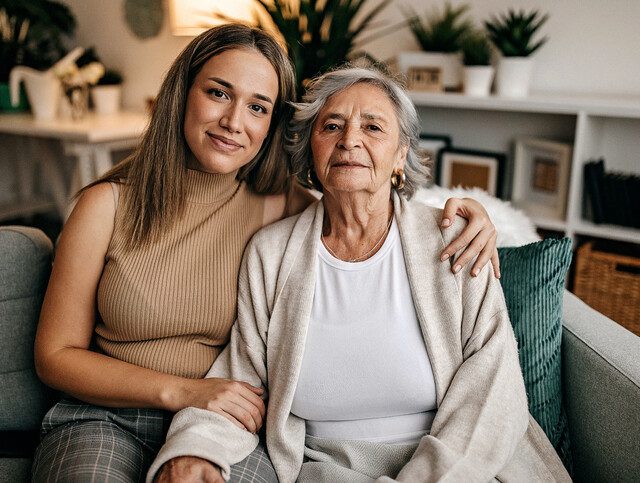Across the globe, 50 million people are living with Alzheimer’s and other forms of dementia. Alzheimer’s is a degenerative brain disease that is the most common form of dementia, and is especially common in adults age 65 or older. It’s a disease that can be challenging not only for the person living with it, but for their loved ones as well. Providing care and support for an individual even in the early stages of Alzheimer’s can be difficult, especially if you don’t know what to do or what kind of support they need. The good news is that we can help you learn more about the disease and how best to care for a loved one showing signs of it.
Common signs and symptoms of Alzheimer’s
Because it is a disease that originates in the brain, the early signs of Alzheimer’s are related in some way to memory, thinking and reasoning skills. It can be easy to dismiss some of the most common symptoms as simple products of aging, so it’s important to know what to look out for. It can start as an inability to remember important dates, names of friends or family or familiar places. An individual may develop a tendency to misplace their belongings, leaving them in unusual places and then struggling to retrace their steps in an effort to remember where they put them. Problem-solving can become a challenge as well as your loved concentrating becomes difficult.
Your loved one may seem confused about where they are or how they got there. You may even be talking with them when they begin to have trouble following the conversation. It can manifest as them stopping in the middle of the conversation or repeating the same thing over and over.
How to support your loved one showing signs of Alzheimer’s
It is not uncommon for people in the early stages of Alzheimer’s to continue living their lives and maintain a measure of independence. Granted, there are precautions that must be taken, and they will ultimately benefit from having the support of friends and family.
If you are providing support for a loved one showing signs of Alzheimer’s, you can help them by first and foremost promoting good health. It can be as simple as ensuring they eat a healthy diet, avoid excess drinking and get eight hours of sleep each night. You can also help them by reducing their stress. Generally, keeping an eye on their blood pressure, cholesterol levels and blood glucose levels will give you a good indication of their overall health and well-being.
As far as maintaining your loved one’s independence, build around their strengths. Don’t dwell too much on what they can’t do. If they are able, encourage them to regularly participate in exercise or physical activity. Establishing routines is also important and can help keep them engaged. Most importantly, develop strong lines of communication. Your goal should be to help them relax. Work with them to avoid situations that may cause too much of a mental strain.
Additional care options for people living with Alzheimer’s
No one ever wants to think of it as a burden when providing care and support for a loved one in the early stages of Alzheimer’s. But the truth is that it’s not easy and there is no shame in looking for help. Take advantage of the resources available to you and find a support service you can trust. Whether that is a private pay service that provides in-home care or a volunteer program within your local community, it never hurts to explore your options.
Ultimately, it’s the health and well-being of your loved one that matters most. It’s up to you to find a healthy way to provide them with the care and support they need. It might be worth considering a senior center or adult day service in the area that can care for your loved one during the day. It’s important to remember that you can’t be with them 24/7 and there are healthcare professionals who know how to provide for the needs of an older adult with early Alzheimer’s.
Memory care services at Oak Trace
Individualized care is the defining principle of Oak Trace’s memory care. Every individual who walks through our doors has their own story and their own needs. It’s our responsibility to create a safe and nurturing environment that provides proper care for them and the peace of mind their friends and family members deserve when choosing our health center for their loved one.
In addition to providing each of our residents personalized care, we have a nurse and a nursing assistant on-site 24 hours a day. We also have a team of trained professionals who are friendly and prepared to help residents perform the essential activities of daily living.
Oak Trace also hosts monthly support group meetings in our health center. First started three years ago, the support group has allowed our team to better support the community at large, providing them with a forum where they can receive compassion and understanding.
If you are considering a memory care community for a loved one living with Alzheimer’s or another form of dementia, let’s talk. Please fill out the form below or call 630-769-6100.


